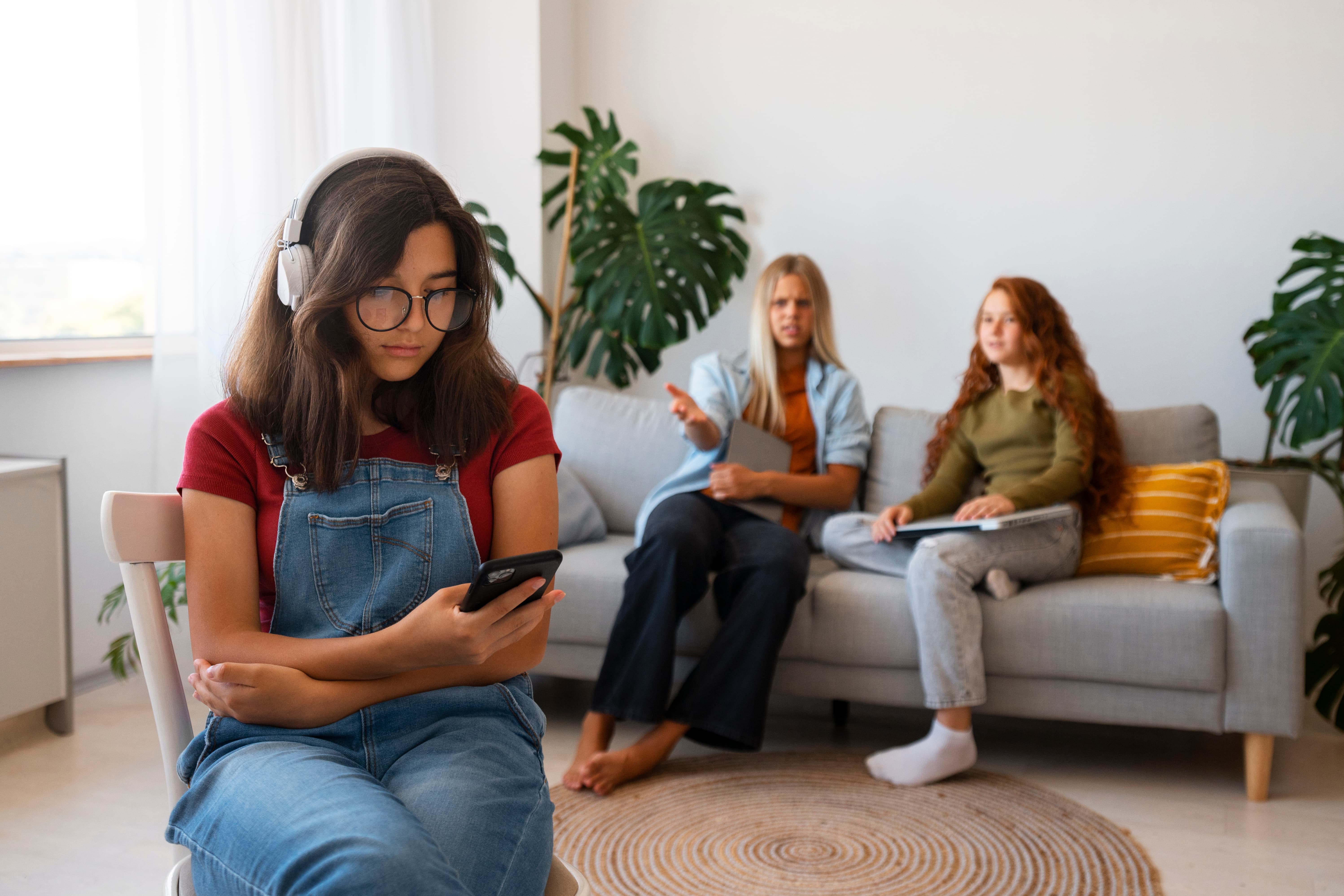Phone and social media addiction develops through dopamine-driven rewards, mood shifts, and app features that reinforce overuse. Effective treatment combines CBT, routine changes, screen-free moments, and dual diagnosis care to address emotional triggers. Recovery strengthens with daily structure and social support.
Scrolling through your phone can feel harmless until sleep gets cut short, focus drops, or you tune out during conversations. Understanding how this cycle builds gives better insight into why phone addiction treatment works when it focuses on both habits and emotions.
Digital Rewards That Reinforce Addictive Behavior
Phones and social media apps are built to grab attention. They tap into how the brain works, which makes them tough to put down, especially for teens.
Dopamine Spikes Follow Notifications and Likes
Every notification, whether it’s a like, message, or new post, releases a burst of dopamine, the brain chemical tied to pleasure. These apps are designed to deliver that feeling on purpose, encouraging users to check over and over.
This loop of reward and anticipation forms habits quickly. Research shows these digital triggers act like other reinforcers. The more you check, the more your brain learns to expect that next buzz or ping.
Feeling anxious when you can’t check your phone is common. But when it gets out of control, that’s when real issues can start, often leading to phone addiction or the need for social media addiction treatment in teens.
Mood Changes Show Screen Use Dependence
Changes in mood can be a sign that screen time is becoming a problem. Watch for:
- Getting irritable when you can’t check your phone
- Trouble focusing or falling asleep
- Feeling worse about yourself after scrolling
- Anxiety or sadness with no clear cause
These patterns show growing dependence. Don’t wait until you already need phone addiction treatment or social media addiction treatment. Recognize when it’s time for a reset.

Daily Triggers That Drive Excessive Use
Most phone use doesn’t start with intention but rather a feeling. Learning to spot daily triggers can help you get more control over screen habits.
Stress or Boredom Leads to Automatic Scrolling
Phones become an easy escape when you’re stressed or bored. Without thinking, you check messages, scroll through social feeds, or open a game. Experts call this “automatic use” because it’s a quick way to avoid discomfort.
This habit builds fast. One quick check turns into ten minutes of scrolling. If this keeps happening, you could already be on the path to needing phone addiction treatment.
A short pause before unlocking your phone can interrupt the cycle. So can simple swaps, like getting a drink, stretching, or talking to someone nearby. These small changes make the urge easier to manage.
App Design Keeps You Hooked and Distracted
Apps are built to hold your attention. They use:
- Endless scroll
- Notifications and icons
- Auto-play videos
- Customized feeds
- Random rewards
These features play a big role in the rising need for social media addiction treatment in teens. Once you see how they work, it’s easier to push back and decide how and when to use your screen.
Clear Limits That Reduce Screen Time
Small changes in your routine can create some space from screens. Setting clear boundaries helps you stay in control instead of falling into old habits.
Tech-Free Moments Help Reset Daily Focus
Taking breaks from screens, even short ones, can improve focus and lower stress. Try setting phone-free times during meals, before bed, or during your morning routine. These pauses let your brain reset and break the habit of constant checking.
Even 20 minutes away from your phone can ease the urge to scroll. Families that build in screen-free time often notice better conversations and more face-to-face connection.
Offline Activities Ease Cravings and Stress
Filling screen time with offline activities helps you stay more balanced and less reactive. Try things like:
- Taking a walk or doing light exercise
- Journaling, sketching, or reading
- Meeting up with a friend
- Cooking something new
- Listening to music or podcasts without multitasking
Research shows that real-world activity and connection can improve your mood and focus, both of which make it easier to change digital habits.

Phone Addiction Treatment in Clinical Recovery Plans
Phone and social media overuse are often connected to deeper mental health issues. At New Horizons Recovery Centers, screen habits are treated as part of a bigger picture and not as separate problems. This approach helps make sure all aspects of someone’s well-being are addressed.
CBT and Group Care Address Screen Habits
Cognitive Behavioral Therapy (CBT) helps people understand how their thoughts and emotions lead to screen overuse. Someone might scroll to avoid anxiety or check apps when feeling down. CBT teaches how to recognize these patterns and build healthier responses.
Group therapy in phone addiction treatment gives clients a space to share experiences, learn from others, and stay motivated. Together, CBT and group support help reduce emotional triggers and improve coping.
Dual Diagnosis Care Supports Full Recovery
Phone addiction often goes along with issues like depression, trauma, or anxiety. Dual diagnosis care treats both at the same time, showing how phone use and mental health affect each other.
This kind of care helps clients move past quick fixes. As emotional regulation improves, screen time becomes easier to manage, and long-term recovery becomes more realistic.
Long-Term Tools That Prevent Relapse
Recovery isn’t just about getting through the first few weeks. Daily structure and solid support systems help you keep things steady and avoid falling back into old screen habits.
Daily Routines Support Digital Balance
Having a plan for your day helps you stay focused. When you decide ahead of time how and when to use your phone, you're less likely to lose track of time.
Here are a few simple changes that can help:
- Set limits on screen time.
- Stick to a regular sleep schedule.
- Keep mealtimes phone-free.
- Use reminders to pause and check in.
- Add offline activities like walking, reading, or quiet time.
These routines help lower impulsive use and make it easier to use your phone when you actually need it.
Social Support Strengthens Healthy Habits
It’s easier to follow through when you’ve got people in your corner. Good support helps you stay motivated and feel less overwhelmed.
Support can come from:
- Regular check-ins with a therapist
- Open conversations with friends or family
- Group therapy or recovery meetups
- Online communities focused on healing
- Behavioral addiction support groups
Having others involved reminds you that recovery is about progress, not doing everything perfectly.
Break the Cycle and Reclaim Your Focus
Phone addiction treatment in Pennsylvania works best when it targets both emotional patterns and daily habits. Change doesn’t mean cutting everything out. It means building better ways to cope, connect, and focus.
New Horizons Recovery Centers offers real support for people ready to break free from compulsive phone use. Reach out today to learn how we can help you or your loved one take back control with practical, proven care.

-ink.jpeg)
-ink.jpeg)
-ink.jpeg)
-ink.jpeg)
-ink.jpeg)
-ink.jpeg)
